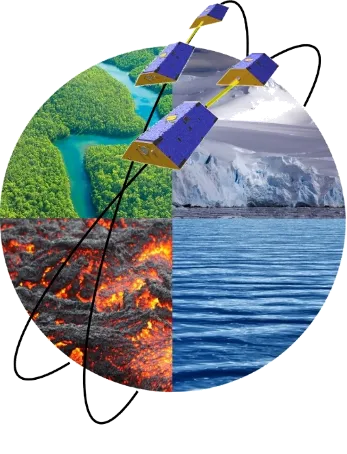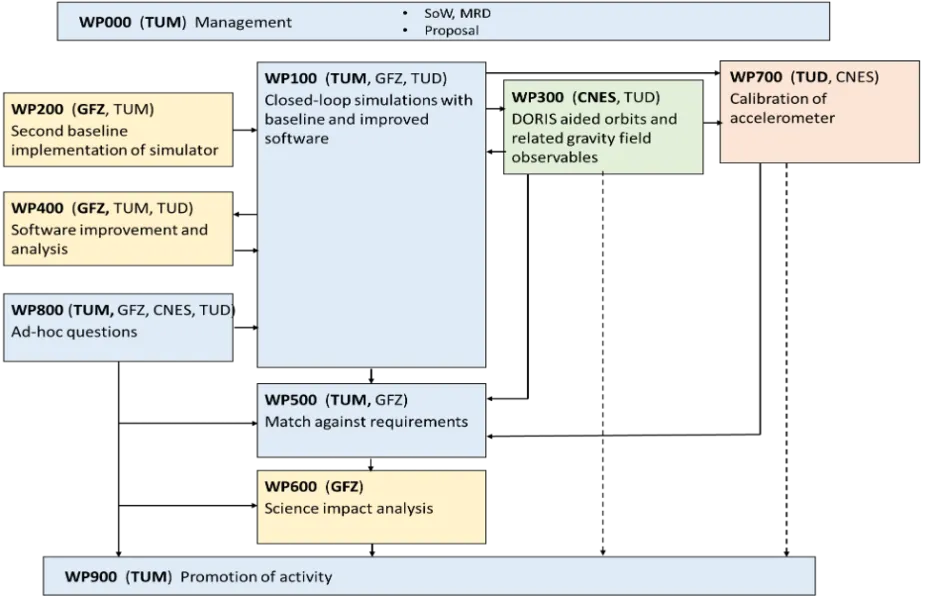
Simulation studies for a Mass change And Geosciences International Constellation (MAGIC)

Gravity field observations are a unique measurement technique to observe and monitor mass and mass transport in the Earth‘s system. Sustained gravity field observation from space contributes significantly to a number of Essential Climate Variables (ECVs) as defined by GCOS, and directly measures changes of the newly adopted ECV “Total water storage”.
In November 2020 it was decided at ESA’s Ministerial Conference to investigate a European next-generation gravity mission (NGGM) in Phase A as first Mission of Opportunity in the FutureEO Programme. The Mass-change And Geoscience International Constellation (acronym: MAGIC) is a joint investigation with NASA’s MCDO study resulting in a jointly accorded Mission Requirements Document (MRD) responding to global user community needs. On NASA side, a pre-Phase A study to address these needs is expected to start in summer 2021. On ESA side, the MAGIC concept is currently being investigated in two parallel industry Phase A studies, complemented by the present science support study.
In the frame of this science study, several potential mission constellations have been investigated and numerically simulated in great depth. This includes Bender-type double pair mission concepts and single/multiple pendulum configurations, with realistic error assumptions regarding the key payload products, in close interaction with the two parallel industry studies. Methodological improvements of processing strategies, for example the co-estimation of short-term gravity field models with various resolution, and the optimum treatment of long-term signals and tailored post-processing techniques, have been investigated. Further aspects such as the benefit of including DORIS for improving satellite orbits to support accelerometer calibration and contributing to gravity retrieval, and advanced methods for accelerometer calibration, have been studied. The results of these studies have been evaluated by an associated science expert panel, leading to potential modifications of the MRD.
